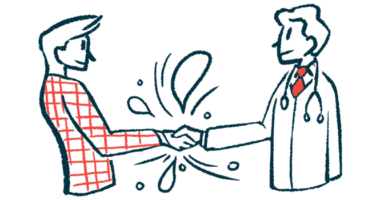Living With ALS
Fatigue
As ALS progresses, many patients experience fatigue, a symptom that can severely affect quality of life. Fatigue in ALS may be caused by the death of nerve cells because muscles around the weakened muscle must work harder to compensate for it. Weakness of the muscles involved in breathing may make it difficult for patients to achieve restful sleep, which can also contribute to fatigue.
Exercise
Exercise may have many benefits for ALS patients, including reducing depression and improving strength and stamina. But it must be performed carefully to be beneficial. Patients should work with a physical therapist to determine how best to exercise safely, as well as to ensure that they include stretching, strength-building, and range-of-motion exercises in their routine.
Smoking
Smoking is one of the risk factors that has been associated with ALS in several studies. It is not known whether this increased risk is caused by nicotine, oxidative stress, or other toxins in tobacco products. Regardless, studies have shown that smokers are more likely to develop ALS than people who have never smoked, regardless of other factors including age and gender.
Speech and Communication
The severity of ALS symptoms can vary from patient to patient, but all commonly experience some level of speaking difficulties. As the muscles of the tongue, lips, vocal cords, and chest weaken, ALS patients may experience various speaking problems that can make it difficult to be understood. Difficulty speaking is referred to as dysarthria.
Mental Health
Navigating an ALS diagnosis is challenging and can have an impact on people’s mental health. Coping strategies and lifestyle changes, including therapy, support groups, meditation, exercise, and a healthy diet, may help people with ALS and their caregivers ease symptoms of depression and anxiety.
Mobility and Movement
As the disease progresses and more muscles are affected, getting around and accomplishing everyday tasks can become increasingly difficult. The degree to which an individual patient is affected can vary significantly, and there is a range of techniques and technologies to keep them independent for as long as possible.
Breathing Difficulties
Breathing problems typically affect all ALS patients at some point. When the muscles involved in breathing weaken, it becomes difficult to inhale and exhale, causing the patient to take shorter and shallower breaths. This causes less oxygen to enter the blood and less carbon dioxide to be released, potentially leading to poor or restless sleep, fatigue, and headaches.
Eating and Drinking
Many ALS patients struggle to maintain a full and healthy diet, which can lead to excessive weight loss as well as further fatigue and weakness. However, there is help available and a variety of techniques to try to combat these issues. Finding the best strategy to cope with problems related to eating and drinking can help maintain the best possible quality of life.






